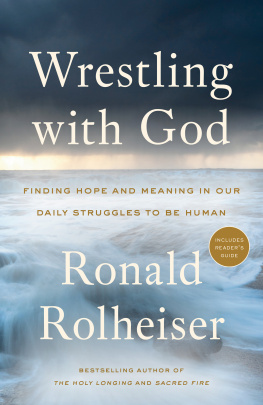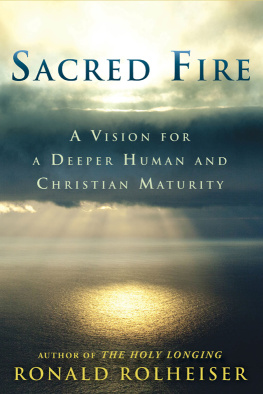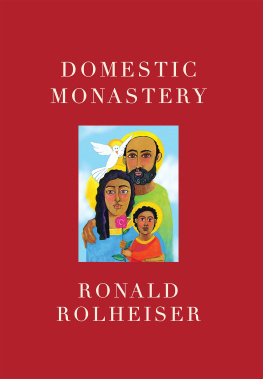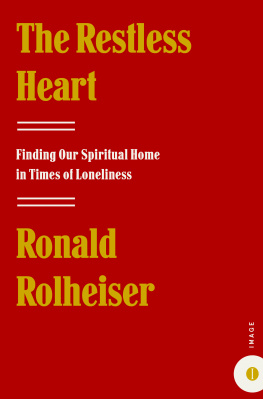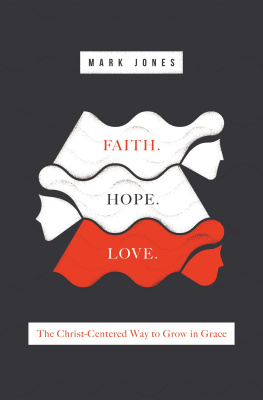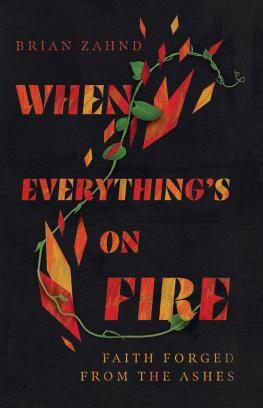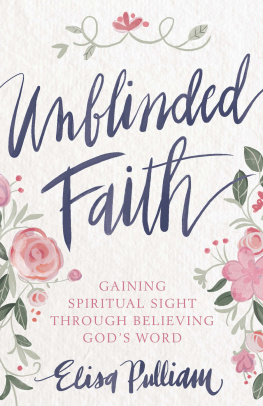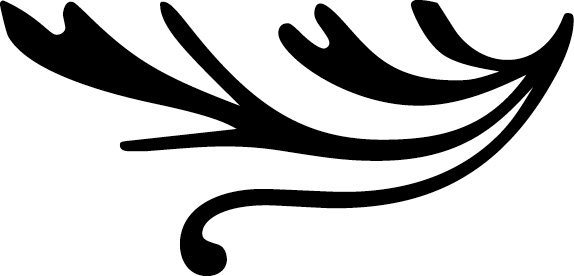Contents
Landmarks
Print Page List
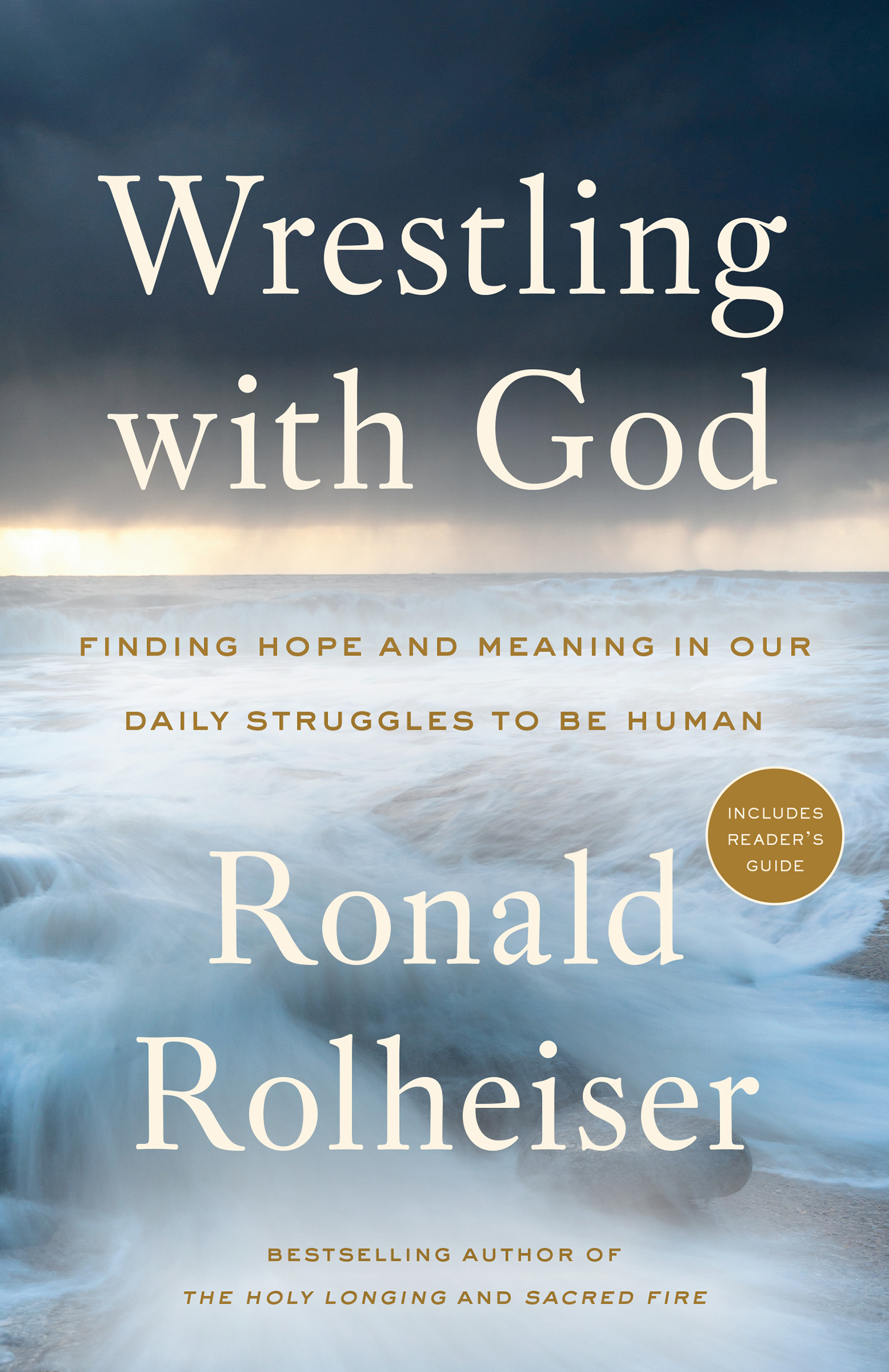
Praise for the Work of Ronald Rolheiser
Ronald Rolheiser is one of the great Christian spiritual writers of our time, as well as one of my own personal favorites.
James Martin, SJ, author of Jesus: A Pilgrimage
When Ron Rolheiser writes, it is clear, compelling, and challenging, plus it is about issues that matter to the soul.
Fr. Richard Rohr, OFM, Center for Action and Contemplation, Albuquerque, New Mexico
A master weaver is at work here.
Sister Helen Prejean, author of Dead Man Walking
Rolheiser dares to ask the hard questions but they are our questionsthe deep ones we are slow to let surface. Then he dares to answer them with clear answers delivered in simple, straightforward language.
Rev. Basil Pennington, OCSO
[Rolheiser] writes clearly and engagingly, his language can at times be lyrical. He is never sentimentaland all the time he is absolutely grounded in reality.
Herbert ODriscoll, author of A Doorway in Time
Spiritual books abound but few hit the mark. Ronald Rolheisers [The Holy Longing] is one of the few. Sound, good sense and insight are combined with genuine sympathy and understanding for the majority of us who struggle spiritually.
Alban McCoy, The Tablet
Spirituality is often given a bad name because it can mask a damaging sentimentality. The Holy Longing is a bracing alternative to religious posturing. Truly incarnational, Ronald Rolheiser grounds his vision of the spiritual life in hard real-life experiences and tells tough truths. In the end, it is the hard truths of compassion, forgiveness, and action in the world that give us a true and lasting hope. A much needed antidote to the consumerist view of religion, this book is both a delight and a challenge to read.
Alan Jones, Dean of Grace Cathedral and author of The Souls Journey
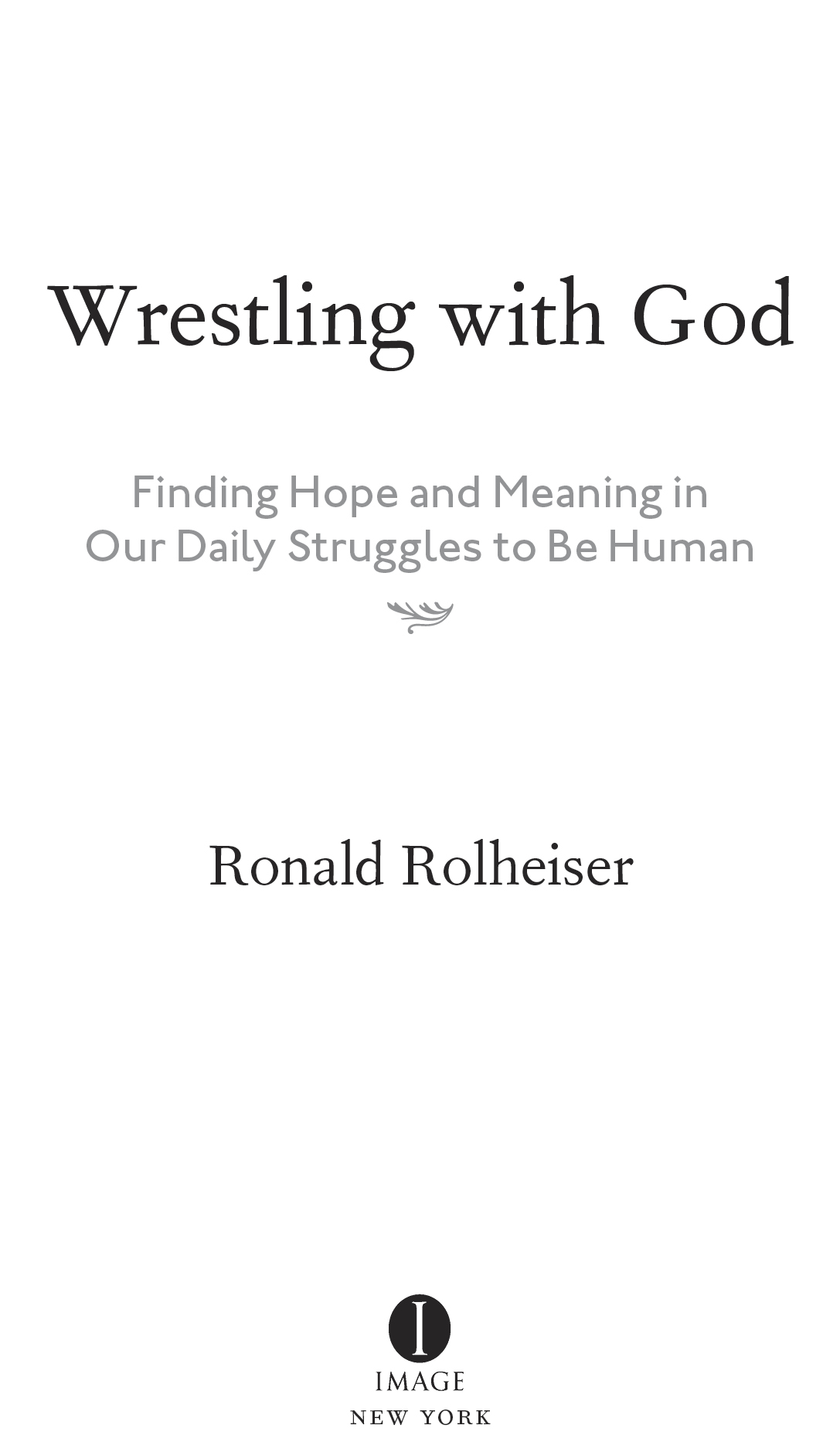
Copyright 2018 by Ronald Rolheiser
Study Guide copyright 2019 by Ronald Rolheiser
All rights reserved.
Published in the United States by Image, an imprint of Random House, a division of Penguin Random House LLC, New York.
ImageCatholicBooks.com
IMAGE is a registered trademark and the I colophon is a trademark of Penguin Random House LLC.
Originally published in hardcover in the United States by Image, a division of Random House LLC, New York, in 2018.
Grateful acknowledgment is made to the following for permission to reprint the previously published material: Covenant by Margaret Halaska, OSF (Review for Religious, May/June 1981, Saint Louis University Libraries). Reprinted by permission of Jesuit Archives and Research Center.
Library of Congress Cataloging-in-Publication Data is available upon request.
ISBN9780804139472
Ebook ISBN9780804139465
Book design by Andrea Lau, adapted for ebook
Cover design: Alane Gianetti
Cover photograph: Mari Owen/Arcangel
v5.4
ep
Contents
The struggle between God and humans breaks out in everyone, together with the longing for reconciliation. Most often this struggle is unconscious and short-lived.The stronger the soul and the flesh, the more fruitful the struggle and the richer the final harmony. God does not love weak souls and flabby flesh. The spirit wants to have to wrestle with flesh which is strong and full of resistance.
NIKOS KAZANTZAKIS , The Last Temptation of Christ
PREFACE
In 1970 Alvin Toffler wrote a book called Future Shock, in which he argued that a person born in the year 1900 who lived until 1970 would see more changes in his or her life than someone who had lived through the previous nineteen hundred years. Hard to believe, but no doubt true.
But Toffler wrote that book nearly fifty years ago. The last few decades have brought about changes in our lives that we could not even have imagined in the 1970s. The Internet and an ever-exploding information technology have put a smartphone or a computer into the hands of almost everyone on this planet. Thousands of television channels and more than a billion websites bring the whole world to our living rooms and bedrooms. Globalization has reshaped virtually all of our communities in terms of ethnicity, culture, and religion. The ever-evolving sexual revolution has radically altered how our world sees love, commitment, marriage, and family. Political and religious extremism polarizes our communities and countries and encourages us to live in fear. Both faith and church attendance have fallen sharply in the last eighty years, leaving more people uncertain about what they believe in and fewer people walking through church doors.
We are like pioneers settling a new world nobody has lived in before. Our task, of course, is not just to survive, but to somehow thrive, flourish, and find meaning, happiness, and, not least, faithsomething to believe in and to commit ourselves to in a world where nothing seems solid or permanent.
This quest sets before us a whole range of new challenges in terms of how we understand life, love, sexuality, family, country, religion, faith, and God. Traditionally, people looked to their churches for guidance on how to meet new challenges. Today, for all kinds of reasons, both good and bad, fewer people are turning to religion for answers. A certain distrust of churches seems to be part of our cultural ethos, and so more people are leaning on their own instincts and resources to sort through lifes big questions.
For the most part this search is honest, but seeking the road of faith and meaning without the classical road maps is fraught with almost insurmountable obstacles, namely, a culture that too easily surrenders to personal comfort, narcissism, greed, grandiosity, paranoia, fear, exclusivity, bitterness, unforgiveness, superficiality, pseudosophistication, blindness to inequality, and an empirical view of reality. For too many people today, nothing is under-the-counter, and mystery and faith are either ignored or viewed negatively as a navet. But we all need a faith, so in such a situation ideologies of all sorts quickly fill the void and become our faith. Sadly, we are mostly blind to this fact and, more unfortunate still, we unconsciously sacralize these ideologies with the exact reverence and obedience that a real faith asks of us. Soon enough they become our religion.
I say this sympathetically. Were not a bad people. In our intent, were sincere, but no ideology carries the wisdom, balance, and challenge found in the great religious traditions, in the scriptures, in Jesus, and in what is best in our churches. A faith journey without a road map can lead us to many dead ends. God, of course, is infinitely patient and will no doubt look upon us when we have missed yet another turn and with forebearance say, Recalculating! My faith believes that all honest people will eventually find their way home, but I also believe that we can avoid a lot of blind alleys by seeking guidance from the deep wells of religious tradition. We have made ourselves religious orphans, partly out of sincerity and partly out of pride, and this has landed us in a place where we no longer have a belief, a faith, or a narrative big enough to give us hope beyond simple optimism.

